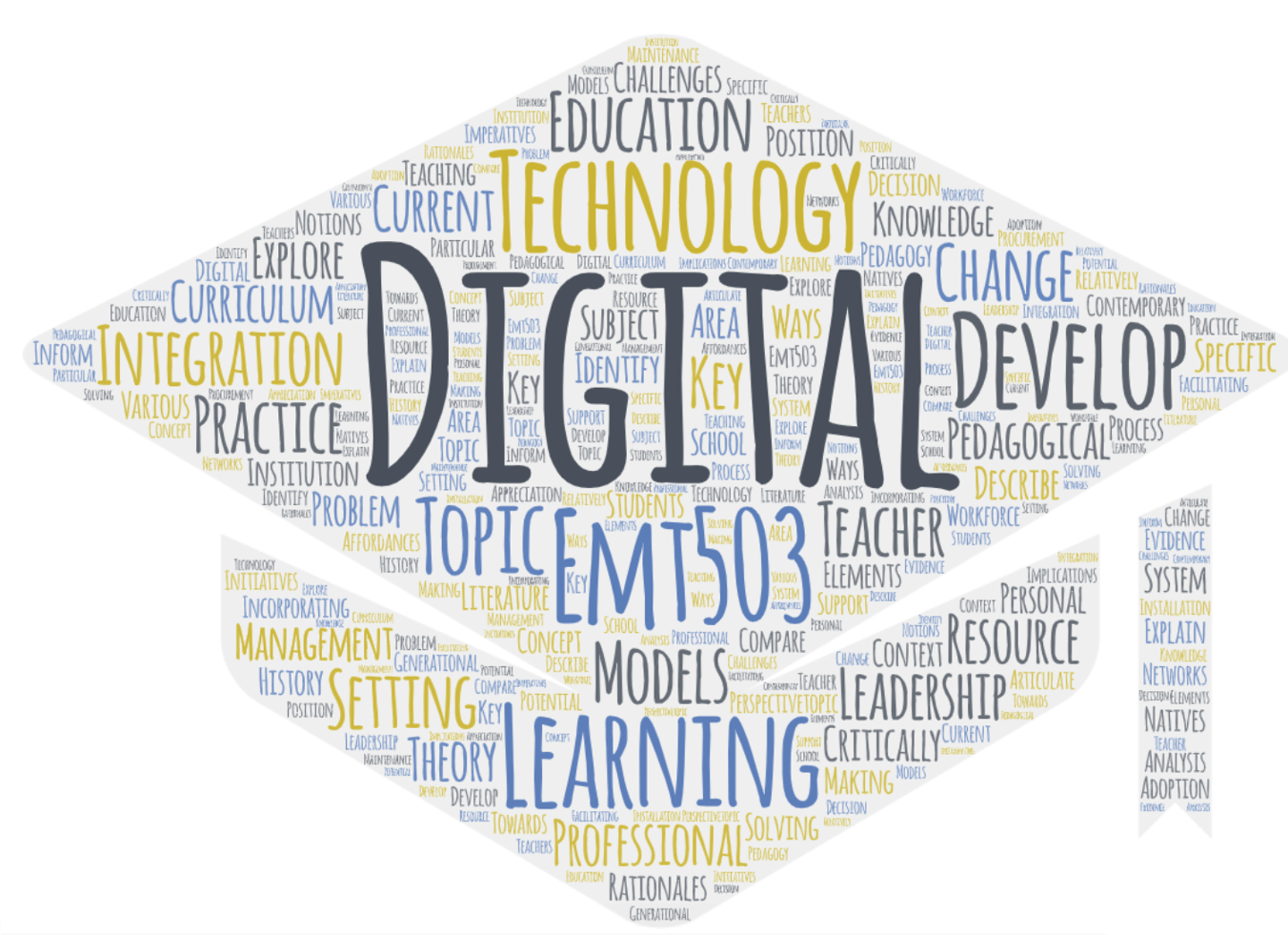EMT503
Leadership in Learning and Teaching with ICT
This subject critically explores the challenges involved in leadership with digital technology (DT) educational settings. Such an exploration leads to the development of a personal position on digital technology in education drawing on relevant pedagogical and leadership theories and on historical and contemporary examples. Students also explore models of DT for teachers’ pedagogical knowledge and their implications for professional development, curriculum design for digital technology integration, and DT resource management and planning. Students will develop a DT learning and teaching plan to address the needs of a specific educational setting.

Learning Experiences
- Module 1: Current context of educational institutions and Digital Learning (DL) integration
- Module 2: The history of DL integration
- Module 3: DL integration and pedagogical change
- Module 4: Models of teacher knowledge incorporating DL pedagogy
- Module 5.:Teacher professional development for DL integration
- Module 6: Educational DL leadership and models of DL decision making
- Module 7: Curriculum development for DL integration
- Module 8: DL resource management planning
- Module 9: Problem solving from a leadership perspective
- Task 1: Early Blog post
- Task 2: Digital technolgy integration policy analysis
- Task 3: Technology planning analysis
- Task 4: Blog post evidence and reflection